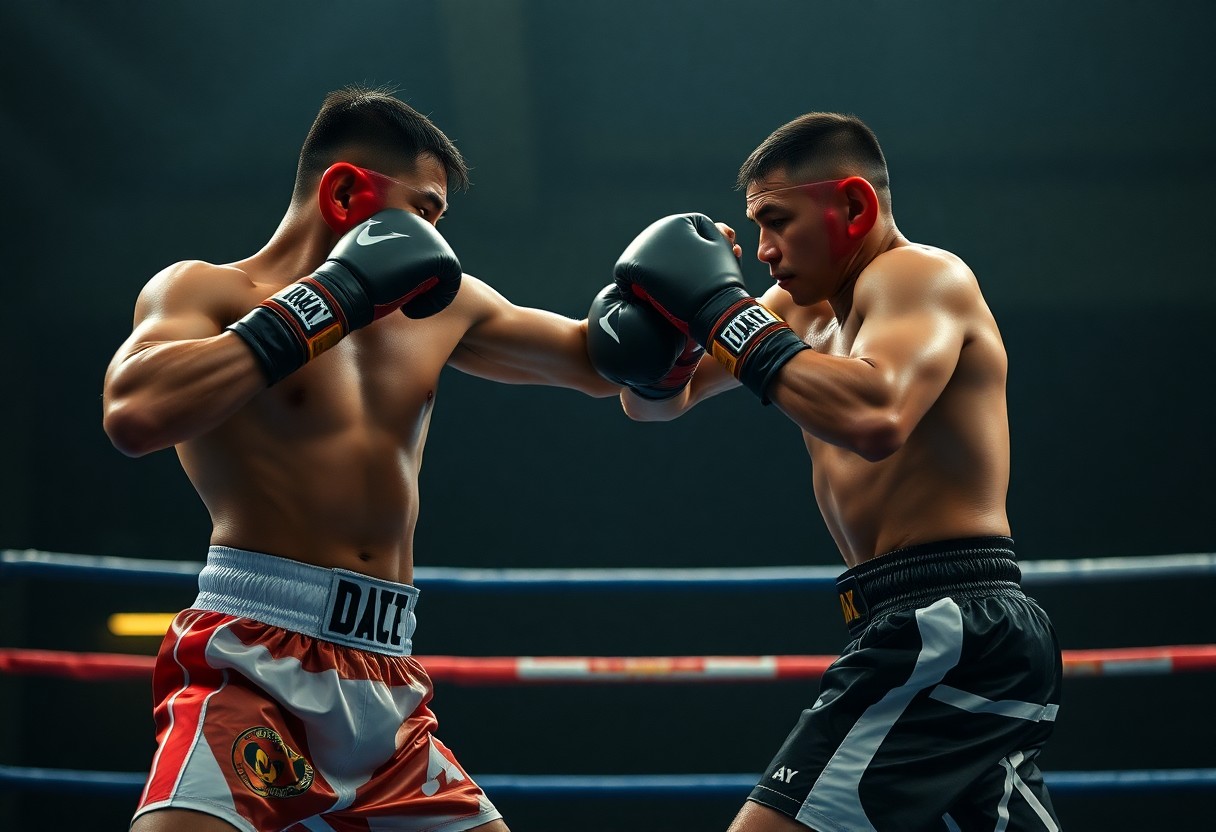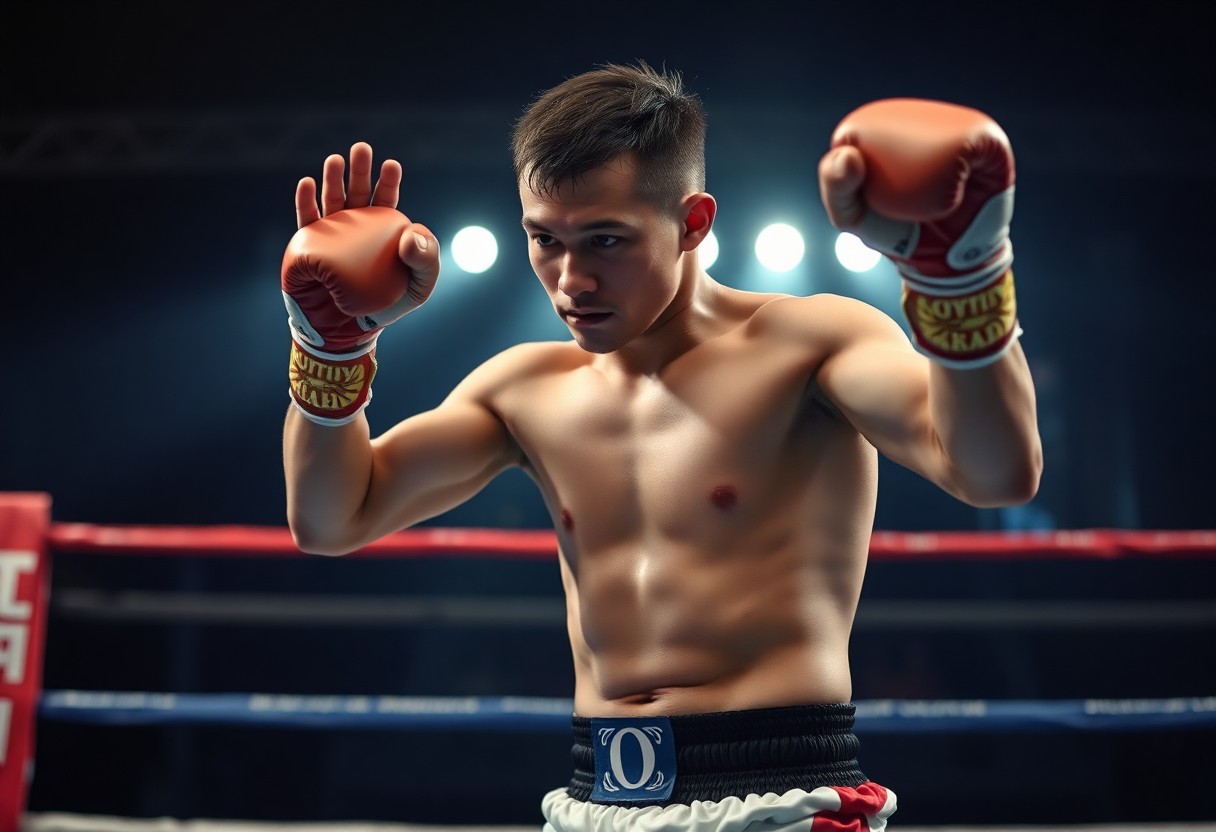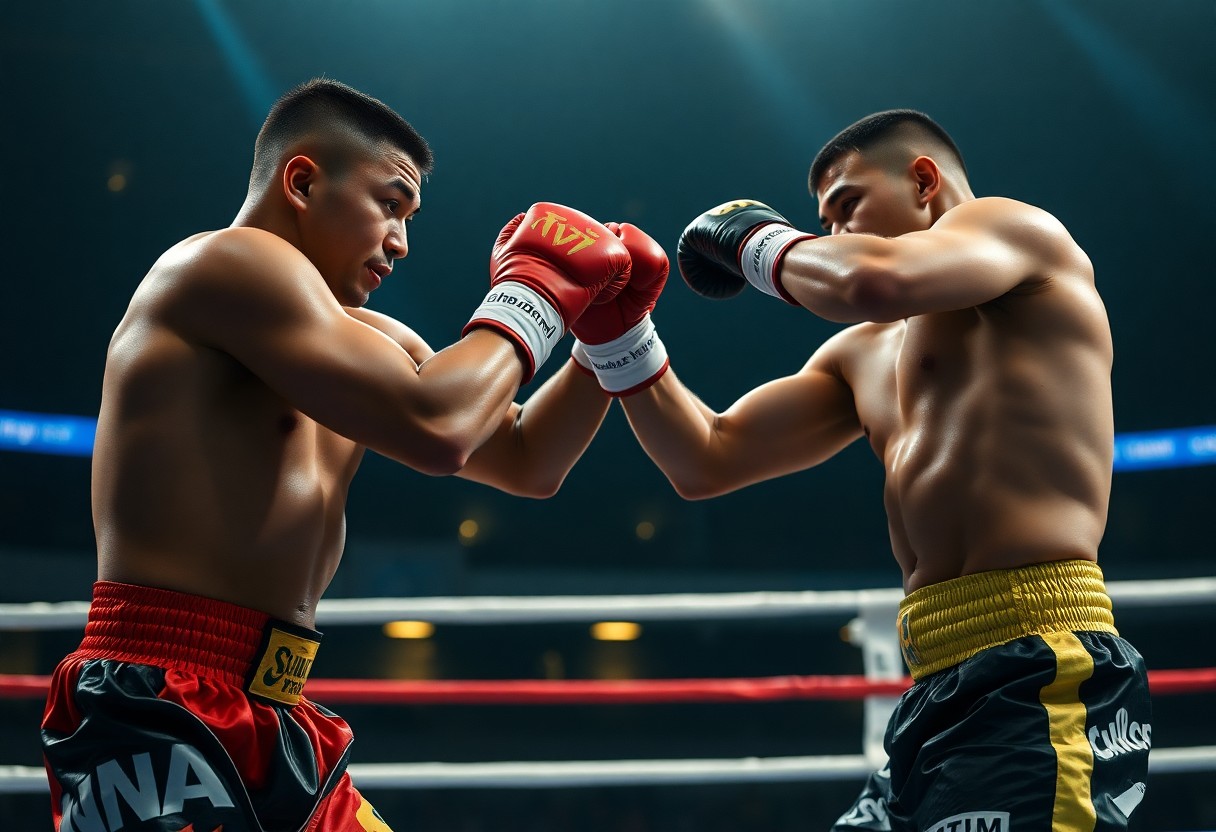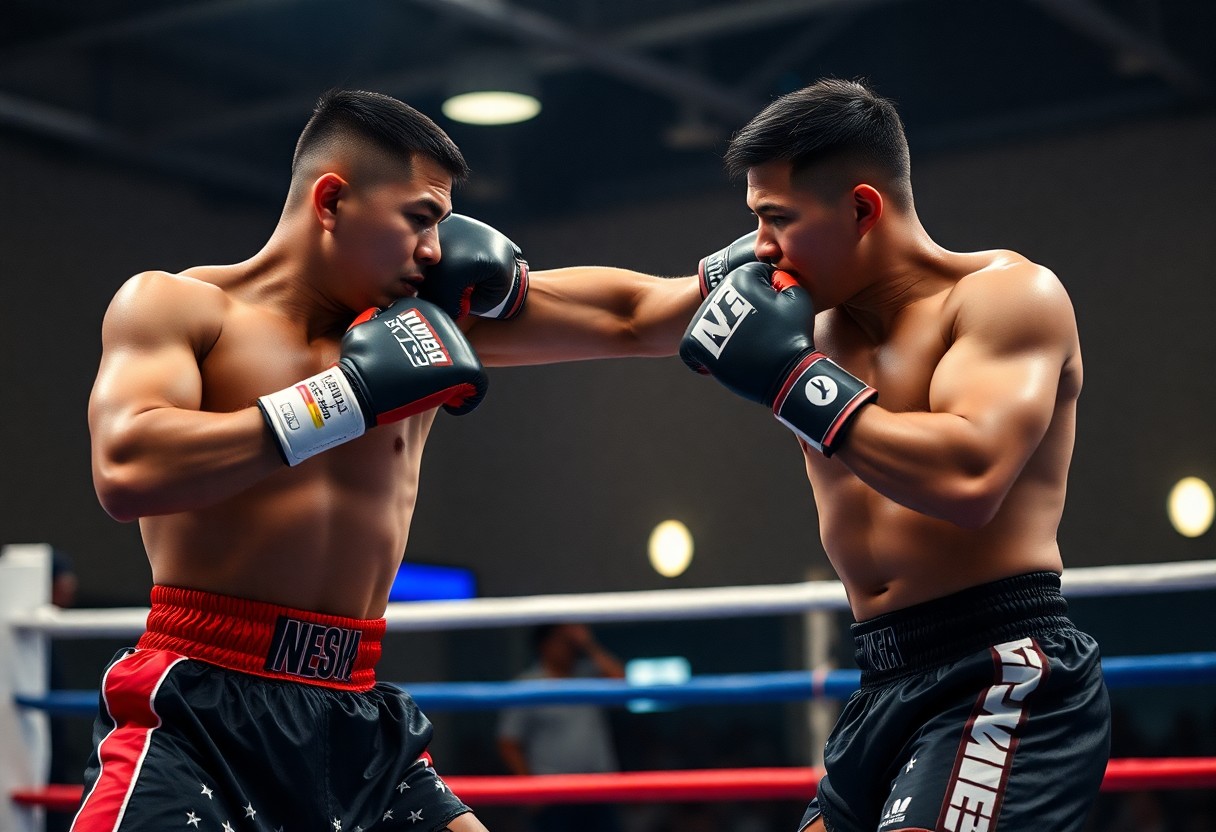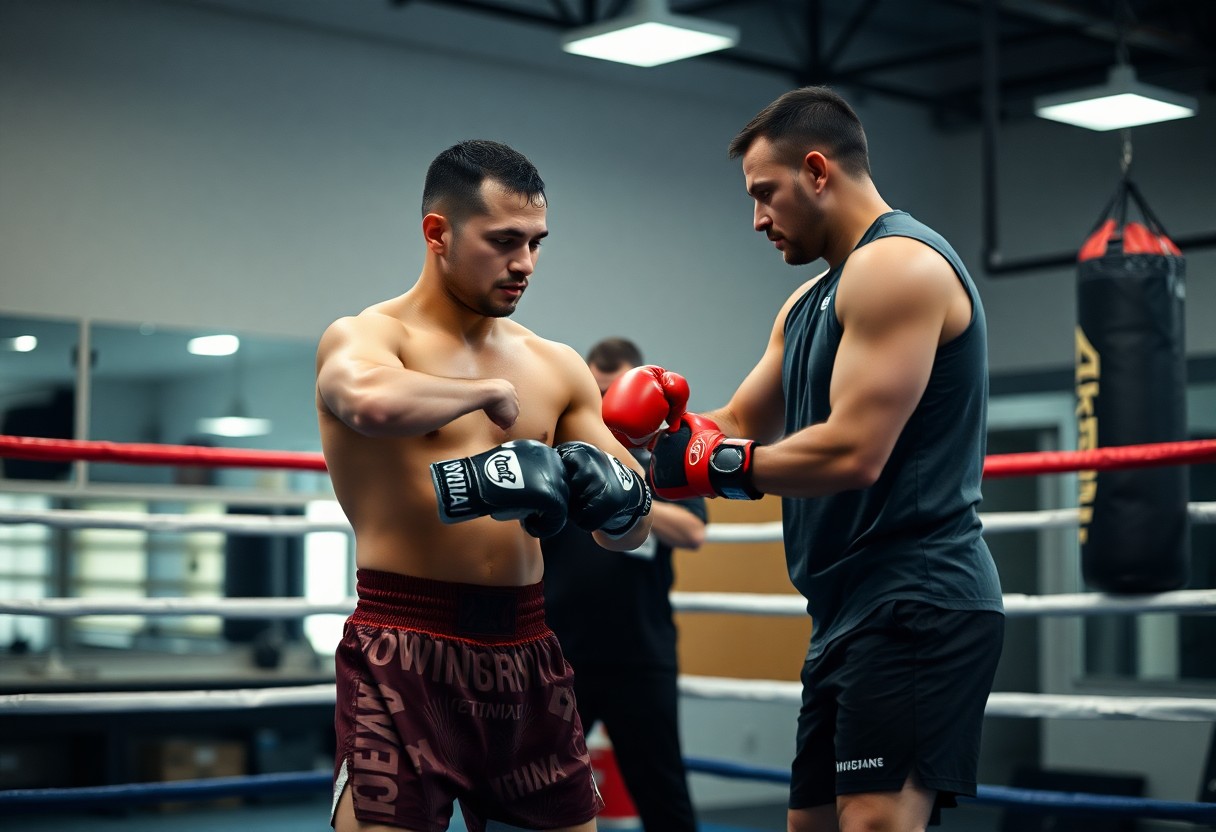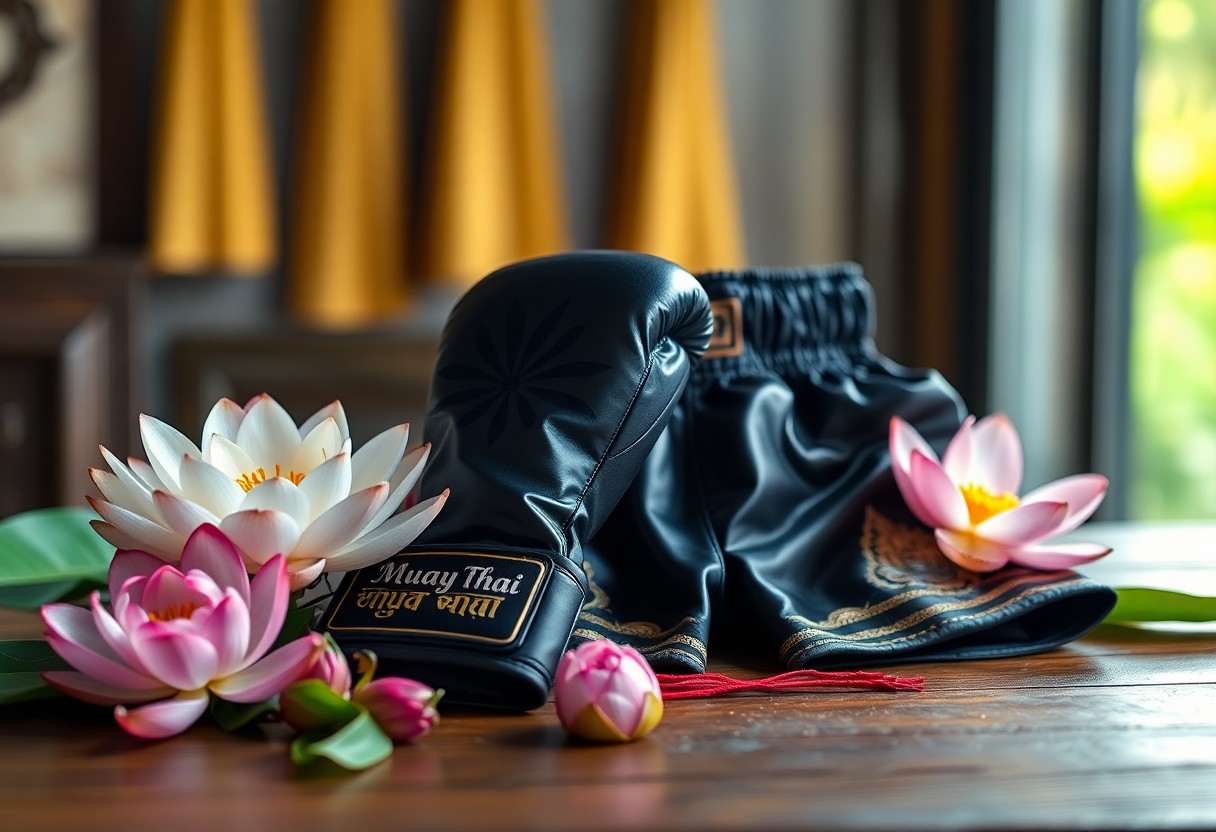
Muay Thai serves as far more than a combat sport in Thailand—it’s a sacred cultural institution that shapes character and moral values. When you observe traditional Muay Thai training, you’ll witness how this ancient martial art instills deep respect for teachers, opponents, and ancestors through ritualistic practices like the Wai Kru ceremony. The sport’s emphasis on humility, discipline, and honor reflects core Thai Buddhist principles, teaching practitioners that true strength comes from inner character rather than physical dominance. Through its rigorous training and spiritual traditions, Muay Thai continues to forge respectful warriors who embody Thailand’s most cherished cultural values.
The Historical Context of Muay Thai
You’ll discover that Muay Thai’s deep connection to respect and honor stems from centuries of cultural evolution, where the martial art served as both a practical fighting system and a sacred practice. Archaeological evidence suggests combat techniques similar to modern Muay Thai existed over 2,000 years ago, developing alongside Thailand’s emergence as a unified kingdom. The art became intertwined with Buddhist principles and royal patronage, creating a unique martial tradition that emphasized spiritual discipline alongside physical prowess. Your understanding of modern Muay Thai’s respectful customs becomes clearer when you trace these historical roots that shaped every ritual, ceremony, and training method still practiced today.
Origins and Evolution of the Art
Ancient Siamese warriors developed Muay Thai techniques during the 16th century as battlefield combat methods when weapons were lost or broken. King Naresuan the Great (1555-1605) personally practiced and promoted the art, establishing it as crucial military training for his soldiers. You can trace the evolution from “Muay Boran” (ancient boxing) to modern Muay Thai through royal chronicles that document specific techniques and training regimens. The art gradually incorporated elements from neighboring cultures while maintaining its distinctly Thai character, with formal rules and regulations emerging during King Rama V’s reign in the late 1800s.
Muay Thai’s Role in Royal and Religious Traditions
Royal courts elevated Muay Thai beyond mere combat sport into a ceremonial art form that honored both monarchy and Buddhist teachings. Kings personally trained in the art and often fought in matches, with King Prachao Sua (Tiger King) famously competing in disguise during the early 18th century. Buddhist monks blessed fighters before competitions, integrating spiritual protection with physical preparation through sacred rituals and amulets.
The “Wai Kru Ram Muay” ceremony you witness before every traditional match originated in these royal courts, where fighters would pay homage to their teachers, the king, and Buddhist deities. Sacred headbands called “Mongkol” were blessed by monks and passed down through generations of fighters, creating spiritual lineages that connected students to their masters across centuries. Royal patronage established permanent training camps within palace grounds, where the art was refined and codified according to Buddhist principles of mindfulness, respect, and self-discipline. You’ll find that even today’s commercial gyms maintain these traditions, requiring students to perform the Wai Kru before training sessions, preserving the sacred connection between martial practice and spiritual development that defined Muay Thai’s role in Thai society.
Muay Thai as a Cultural Symbol of Respect
You witness centuries of Thai cultural values crystallized every time fighters enter the ring. Muay Thai transcends sport to become a living embodiment of respect, where ancient traditions merge with modern competition. The art form serves as Thailand’s cultural ambassador, teaching practitioners worldwide that physical prowess must always bow to spiritual discipline. Every movement, from the pre-fight rituals to post-match conduct, reinforces the Thai principle that strength without honor is meaningless. Through Muay Thai, you experience how respect isn’t merely shown—it’s lived, breathed, and passed down through generations of dedicated practitioners.
The Wai Kru Ceremony: An Expression of Gratitude
Before any fight begins, you observe fighters performing the sacred Wai Kru Ram Muay, a ritualistic dance that honors teachers, ancestors, and the art itself. This ceremony requires fighters to prostrate themselves completely, touching their foreheads to the canvas in ultimate humility. Each movement tells a story of gratitude—to parents who sacrificed for training, to trainers who shared knowledge, and to the spirits believed to protect fighters. The mongkol headband and prajioud armbands worn during this ceremony are blessed by Buddhist monks, transforming the ring into sacred space where respect takes precedence over aggression.
Fighting Etiquette: Honoring Opponents and Trainers
Your conduct inside the ring reflects Thailand’s deepest values about mutual respect and dignified competition. Fighters never step on the ring ropes with their feet, as this would show disrespect to the sacred space, and they always enter through the ropes in a specific manner. Post-fight protocol demands that winners immediately show reverence to defeated opponents, often helping them to their feet or offering embraces. Trainers receive equal honor—fighters will wai (bow) to their corners before and after each round, acknowledging that individual success belongs to the entire team.
Traditional Muay Thai gyms enforce strict behavioral codes that extend far beyond fighting techniques. You learn to address trainers as “Kru” (teacher) with unwavering respect, never questioning their methods or showing frustration during training. Sparring sessions become lessons in controlled aggression, where you’re taught to protect your partner while improving your own skills. The concept of “sanuk” (fun) ensures that even intense training maintains joy and camaraderie, preventing ego from corrupting the learning process. Veteran fighters often share stories of champions who were stripped of titles not for losing fights, but for displaying arrogance or disrespecting opponents. Your reputation in Thailand’s Muay Thai community depends more on your character outside the ring than your win-loss record, creating a culture where martial excellence serves personal development rather than mere dominance.
The Influence of Muay Thai on Thai Values
You’ll discover that Muay Thai extends far beyond physical combat, serving as a living repository of Thai moral principles that have shaped generations. The sport instills core values of humility, perseverance, and respect for elders through its ritualistic practices and training methodologies. When you observe Thai fighters performing the wai kru ram muay ceremony, you’re witnessing centuries-old traditions that emphasize gratitude toward teachers and ancestors. These values permeate daily Thai life, influencing how people interact in business, family relationships, and community settings, making Muay Thai an imperative cultural cornerstone rather than merely a martial art.
Discipline and Dedication: Lifelong Lessons from the Ring
Your training in authentic Muay Thai camps reveals how daily 6 AM wake-up calls and grueling 3-hour sessions forge unbreakable mental fortitude. Thai fighters begin training as young as 8 years old, developing discipline that carries into every aspect of their lives. The concept of “jai yen” (cool heart) taught through countless hours of pad work and sparring becomes a life philosophy, helping you maintain composure during adversity. Former champions like Samart Payakaroon credit their business success to the patience and dedication learned in the ring, demonstrating how these lessons transcend sport.
Building Community: Muay Thai Gyms as Social Hubs
Your local Muay Thai gym functions as the heartbeat of Thai neighborhoods, where fighters, trainers, and families gather daily to share meals and stories. These spaces operate as informal community centers where you’ll find children doing homework between training sessions while grandparents offer wisdom to young fighters. The gym becomes a second family, providing support networks that extend beyond athletics into personal and financial assistance during difficult times.
You’ll witness how these gyms create intricate social hierarchies based on respect rather than economic status, where successful fighters often return to support their home camps financially. At Sityodtong Gym in Pattaya, for example, international students train alongside local children whose families receive free training and meals. The “phi-nong” (older sibling-younger sibling) system ensures experienced fighters mentor newcomers, creating bonds that last decades. Your trainer likely supports multiple families through prize money and gym earnings, demonstrating how individual success translates into collective prosperity. These relationships extend into business partnerships, marriages, and lifelong friendships that strengthen the entire community fabric.
The Intersection of Muay Thai and National Identity
You witness Thailand’s deepest cultural values crystallize through Muay Thai, where the sport transcends mere physical combat to become a living embodiment of national character. Every ritual, technique, and tradition within Muay Thai reflects the Thai people’s reverence for ancestors, respect for hierarchy, and unwavering loyalty to the monarchy. The art form serves as a cultural ambassador that communicates Thailand’s spiritual depth and warrior heritage to the world, making it impossible to separate the sport from the nation’s collective identity and pride.
International Recognition: How Muay Thai Shaped Thailand’s Image
You observe Thailand’s global reputation transform through Muay Thai’s international expansion, with over 120 countries now practicing the art and hosting sanctioned competitions. Major international fighters like Buakaw Por Pramuk and Saenchai have elevated Thailand’s profile beyond tourism, showcasing the nation’s martial prowess and cultural sophistication. The sport generates approximately $2 billion annually for Thailand’s economy through training camps, international events, and cultural tourism, positioning the country as the undisputed authority on authentic combat sports and traditional values.
Muay Thai in Cultural Celebrations and National Pride
You experience Thailand’s most significant celebrations through the lens of Muay Thai, where the sport features prominently in royal ceremonies, religious festivals, and national holidays. During Songkran and Loy Krathong festivals, traditional Muay Thai demonstrations honor ancestors and celebrate Thai heritage, while the annual Wai Kru ceremony at Ayutthaya draws thousands of practitioners worldwide to pay respects to the art’s origins and masters.
Your understanding of Thai national pride deepens when you witness how Muay Thai victories unite the entire nation, transcending social and economic boundaries. Championship wins by Thai fighters become national celebrations broadcast live across the country, with government officials and royalty often attending major bouts. The sport’s integration into school curricula and military training demonstrates its role as a cornerstone of Thai identity formation. Over 300,000 Thai children participate in organized Muay Thai programs that emphasize character development alongside physical training, ensuring the values of respect, honor, and cultural preservation pass to future generations while maintaining Thailand’s position as the spiritual home of this ancient warrior art.
Practical Lessons from Muay Thai for Global Respect and Honor
You can extract powerful principles from Muay Thai’s cultural framework and apply them to modern international interactions. The sport’s emphasis on showing respect before conflict through the wai kru ritual translates directly to diplomatic and business negotiations worldwide. Professional fighters demonstrate how you can maintain fierce competitiveness while honoring your opponent’s dignity—a balance that transforms workplace dynamics and cross-cultural relationships. When you observe how Thai fighters bow to their trainers regardless of victory or defeat, you witness a model for accountability that transcends cultural boundaries.
Implementing Cultural Respect in Everyday Life
Your daily interactions gain depth when you adopt Muay Thai’s respect protocols. Start meetings by acknowledging others’ expertise rather than immediately asserting your position. Listen before you speak, mirroring how fighters study their opponents with genuine attention. When disagreements arise, you can separate the person from the problem—attacking ideas while preserving dignity. Thai boxers never celebrate by diminishing their defeated opponent; instead, they often help them up and embrace. This practice transforms how you handle workplace conflicts and personal relationships.
Enhancing Global Understanding through Martial Arts
Martial arts programs in international schools now incorporate cultural education alongside physical training, with over 200 universities worldwide offering Muay Thai courses that include Thai history and philosophy. You gain authentic cultural insight when learning the language, rituals, and values embedded in fighting techniques. Students report increased empathy and cross-cultural communication skills after training in traditional Thai boxing environments.
Your perspective on conflict resolution expands when you experience how Muay Thai gyms operate as microcosms of Thai society. Training camps welcome fighters from dozens of countries, creating natural laboratories for cultural exchange where respect becomes the universal language. American, Brazilian, and European fighters learn to navigate Thai social hierarchies, discovering how age, experience, and wisdom command reverence regardless of nationality. These interactions break down stereotypes more effectively than formal cultural sensitivity training. You witness firsthand how shared physical challenges dissolve prejudices—when you’re exhausted from pad work, your training partner’s skin color or accent becomes irrelevant compared to their willingness to push you toward improvement. International Muay Thai tournaments demonstrate this principle on larger scales, with competitors from conflicting nations showing mutual respect inside the ring while their countries maintain political tensions outside it.
To wrap up
Summing up, you can see that Muay Thai serves as far more than a combat sport in Thai society – it functions as a cultural cornerstone that instills profound values of respect and honor. Through your understanding of the Wai Kru ritual, the mentorship between trainers and students, and the deep reverence for opponents, you recognize how this ancient art form shapes character and moral development. When you observe Muay Thai practitioners, you witness individuals who embody humility, discipline, and integrity—qualities that extend beyond the ring into everyday Thai life, preserving cultural traditions while building stronger communities.

